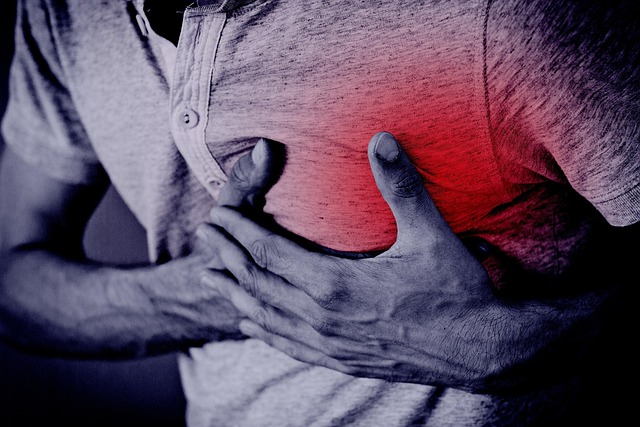Between May and June 2025, Hassan district in Karnataka reported 24 sudden deaths of cab and auto drivers among adults aged under 45—alarming amounts, especially among cab and auto drivers. With six of the victims falling into this occupation, the spotlight is now on occupational health risks and systemic safety measures .

Health Minister Speaks: Dinesh Gundu Rao’s Key Insights on sudden deaths of cab/auto driver
During a press briefing, Health Minister Dinesh Gundu Rao emphasized several critical findings and ongoing measures:
- Drivers at higher risk: Nearly 30% of sudden deaths in Hassan involved auto/cab drivers .
- Lifestyle-related factors: Poor sleep, irregular meals, stress, sedentary habits, and exposure to pollution are prominent risk contributors .
- No spike overall—but age concerns: While deaths aren’t higher than previous years, the fact that many victims were under 45, including even teenagers, remains alarming.
- Expert committee recommendations: Mandatory reporting and post-mortems for out-of-hospital sudden deaths, CPR training, and driver-focused cardiac screenings .
- Health checks mandate: Plans are underway to make heart health check-ups for auto and cab drivers mandatory, possibly annually or bi-annually .
What the Data Shows
- Out of the 24 sudden deaths, 10 confirmed heart attacks, about 10 probable cardiac-related deaths, and a few non-cardiac cases .
- Many of the deceased had undiagnosed risk factors such as hypertension, diabetes, smoking, alcohol use, obesity, and family history.
- No significant rise in heart attack deaths overall—20 cases in May–June 2025 vs 19 in the same period in 2024.
Why Cab & Auto Drivers Are Vulnerable
Cab and auto drivers share a unique set of occupational risk factors:
- Long sedentary hours – Constant sitting leads to poor circulation and stress on the cardiovascular system.
- Unhealthy diet – Frequent roadside meals high in oil, salt, and preservatives.
- Irregular sleep & stress – Erratic routines and high-stress traffic situations.
- Exposure to pollution & noise – Chronic exposure elevates heart disease risk.
- Low access to healthcare – Many skip wellness check-ups due to time, cost, or awareness gaps .
Government’s Action Plan
The Karnataka government, as outlined by Minister Rao, is implementing a comprehensive response:
- Mandatory post-mortems and notification for all out-of-hospital sudden deaths .
- Free cardiac screenings for cab and auto drivers, possibly through drivers’ associations or helplines .
- CPR training and public outreach, including rolling out the Hrudaya Jyothi initiative across PHCs/CHCs.
- Awareness programs on lifestyle—healthy eating, exercise, sleep hygiene, and quitting tobacco/alcohol.
Also Read :Government Teacher Shortage in Karnataka: A Deep Crisis Impacting Education
What Needs Your Attention
- For drivers: Regular heart check-ups, healthy diet, and manageable work routines can be lifesaving.
- For families and associations: Facilitating health camps, awareness sessions, and easy access to screenings.
- For the public & government: Supporting policy implementation and ensuring essential health infrastructure is available at the grassroots.
Prevention and Precaution: Steps to Protect Driver Lives
To effectively prevent sudden deaths of cab and auto drivers in Karnataka, a mix of health awareness, regular screening, and lifestyle changes is crucial. The government’s initiative to conduct mandatory cardiac screenings is a welcome step, but more can be done at both the community and individual levels.
1. Annual Health Camps
Local authorities and driver associations should collaborate to organize free annual health check-ups covering BP, cholesterol, ECG, diabetes, and BMI. Early detection of heart conditions can save lives.
2. Awareness Programs
Workshops on heart health, stress management, and CPR training should be made mandatory for all drivers. Simple tips on hydration, regular sleep, low-fat diets, and avoiding tobacco and alcohol can go a long way.
3. Digital Health Cards
Create a digital health ID for each registered driver that stores their health reports and alerts for follow-up check-ups.
4. Rest Zones & Regulated Work Hours
Governments and cab aggregators should set up driver rest points and enforce maximum driving hours to reduce fatigue—a major cause of stress-induced heart problems.
By adopting a proactive and preventive approach, Karnataka can protect thousands of hardworking drivers from sudden deaths of cab and create a safer, healthier work environment for all.
Final Thoughts
Although the overall death figures haven’t increased, the surge in young driver fatalities highlights a pressing public health challenge. Karnataka’s response—with proactive health screenings, mandatory post-mortems, and awareness campaigns—is a strong move toward prevention.
However, real impact depends on ground implementation—with regular screenings, better lifestyle education, and medical infrastructure accessible for high-risk groups it will decrease sudden deaths of cab. Ideally, this should evolve into a national focus on occupational health for drivers and others in similar professions.
To tackle the rising concern of sudden deaths of cab and auto drivers, public health initiatives must extend beyond hospitals and reach every transport hub. Drivers often ignore early signs of heart-related issues due to lack of awareness or fear of losing daily income. Creating a system that encourages timely medical consultation without financial loss is essential. Furthermore, NGOs and health departments can collaborate to distribute informative leaflets and organize mobile health check-up vans. Addressing lifestyle habits, like smoking and irregular meals, should be part of the training. With a collective effort, the alarming trend of sudden deaths of cab and auto drivers can be significantly reduced.
FAQs
Q: Are these sudden deaths of cab/auto drivers a new trend?
A: No. The number hasn’t spiked compared to last year, but the younger age of victims, especially drivers, is cause for concern
Q: What is Karnataka doing for sudden deaths of cab and auto drivers?
A: Plans include heart-screening initiatives, mandatory health checkups, CPR training, and public awareness campaigns.
Q: What lifestyle changes can help prevent this?
A: Balanced meals, regular sleep, exercise, stress management, and reducing smoking or alcohol use are key.
To reduce sudden deaths of cab/auto driver we can simply follow the above steps and understand about it .
